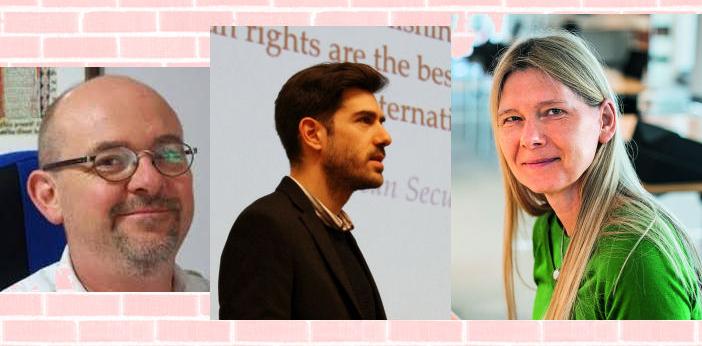Public lectures

We're delighted to offer three lectures by historians from the Faculty, aimed at a general audience. There'll be opportunities to ask questions, and learn more about their latest historical research.
Tickets are free and can be booked via the link by each title. All are very welcome to join us.
Tuesday 2nd March 5.00pm
Revolution, freedom, and the Arab twentieth century Ticket
by Dr Andrew Arsan
Ten years ago, the citizens of Tunisia, Egypt, Bahrain, Yemen, Libya, and Syria rose up against their rulers, demanding dignity and freedom. A decade on, we have become used to hearing the ‘Arab spring’ described as a failure. Rather than heralding a new age of democracy and equality, we are told, it brought on instead a bleak winter of autocracy, civil war, and humanitarian disaster. In this telling, the uprisings of 2011 were a one-off occurrence, a brief interlude in a long history of oppression, instability, and inequality. But the Arab revolutions were not quite as exceptional as this account suggests. On the contrary, they were the culmination of a century of struggle for individual rights and collective freedoms. This is the story I will plot out in this talk.
Saturday 6th March 5.00pm
The Triumph of Fashion in the Global Past- and where it has left us today Ticket
by Professor Ulinka Rublack
Fashion can seem a timeless and silly passion. The subject is easily reduced to changes of style and appears a world apart from the type of “proper” history which analyses political, social and economic transformations. Yet from about 1300, a new thirst for fashion fuelled trade, innovation and interconnection in unparalleled ways. By the late eighteenth century, thousands of sumptuary laws and regulations which desperately sought to curtail male and female spending on fashion had been abandoned. To be up with the times meant for people to be up with fashion. This was a revolution in attitudes. My lecture tells the story of how this pursuit of novelty and fascination with fashion became such a marked feature of life in Europe as well as other parts of the world, to explore where this development appears to have left us.
Saturday 13th March 5.00pm (rescheduled)
What was medieval heresy and why does it matter? Ticket
by Professor John Arnold
This talk will focus on the medieval heretics usually known as the ‘Cathars’ who were active in southern France from the late twelfth to the early fourteenth century. For many decades historians, tourists and writers of popular thrillers have presented the Cathars as a separate ‘counter-Church’ to orthodox Christianity, holding a radically different ‘dualist’ faith. But in recent years some have attempted radically to undo this picture, arguing that the ‘heresy’ was really nothing other than local Christian piety, utterly distorted for political reasons by those external to the region - ‘the Cathar’ as a phantasm of the inquisitor. Professor Arnold began his career working on how inquisitorial evidence distorts and shapes the words of those it interrogated, and has focused subsequently on the ‘lived religion’ of ordinary lay Christians. In this talk, he examines the case for political and inquisitorial distortions, asking whether the ‘revisionist’ analysis has itself distorted what we can see of the faith labelled ‘heretical’ by the Church; and, noting how various modern parallels have informed the debate, discusses how best we might see ‘medieval heresy’ in a broader frame.
